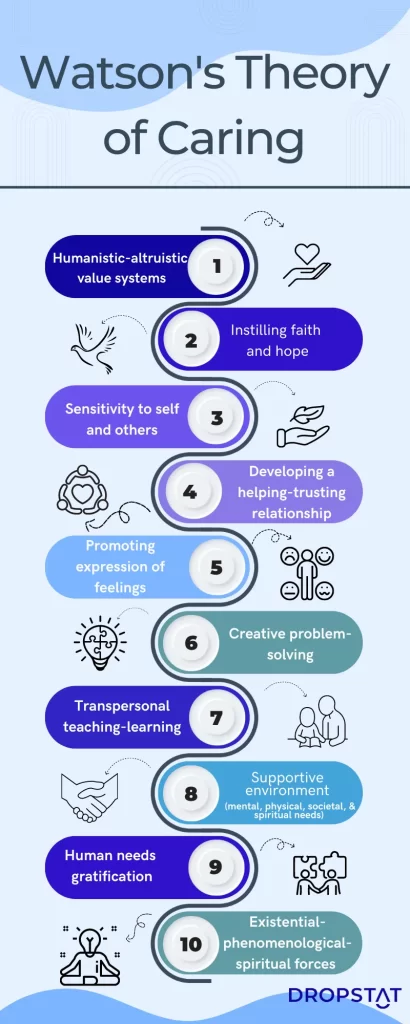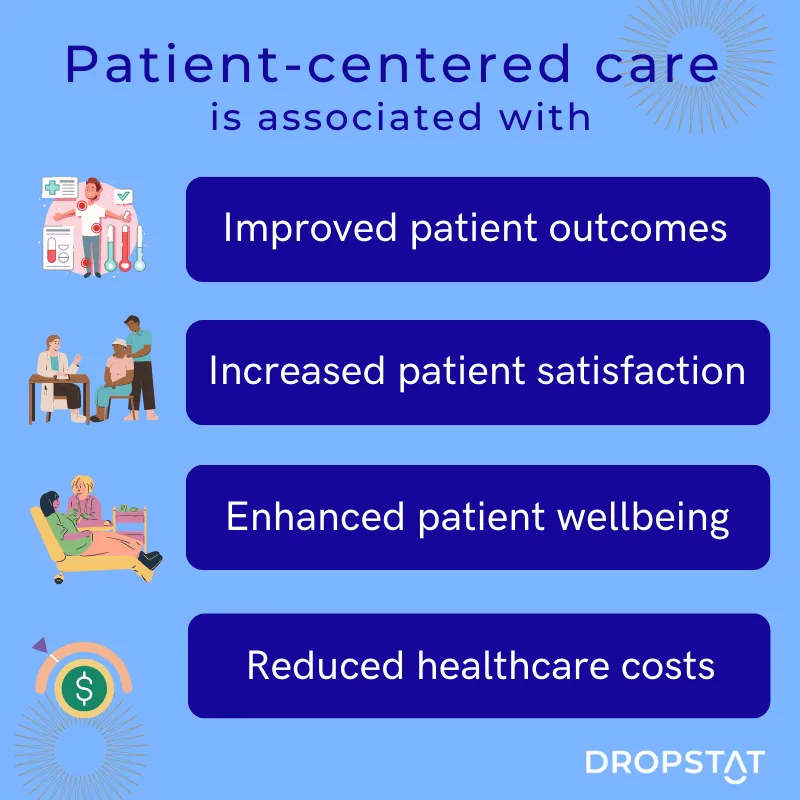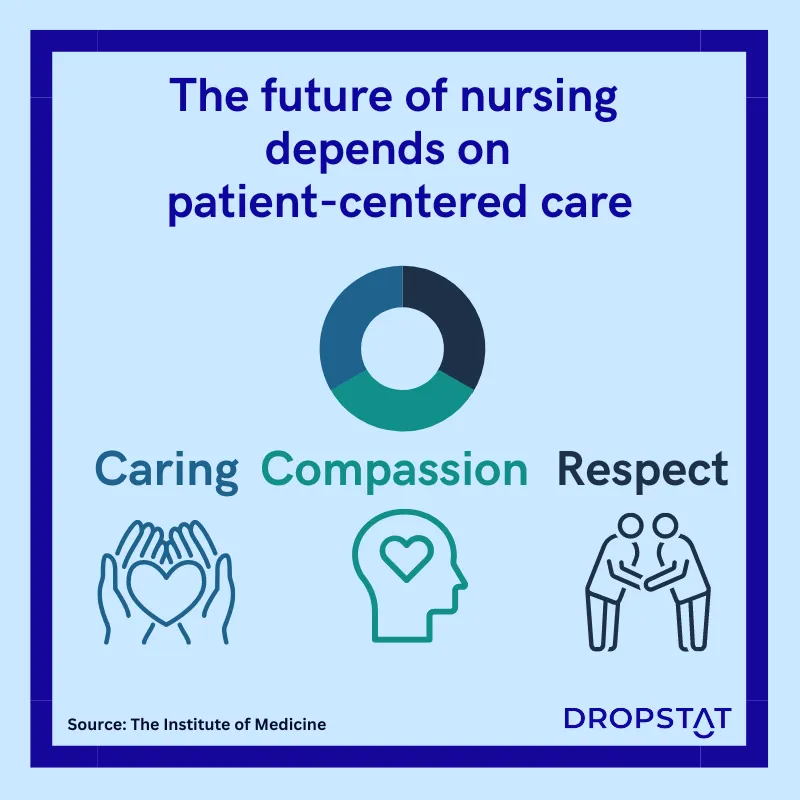What is caring in nursing?
Caring in nursing can be defined as humane and sympathetic interactions between healthcare providers and patients. It involves providing physical and emotional comfort to patients, alleviating patient pain, and promoting healing. Caring in nursing also requires respecting the patient’s dignity and autonomy and providing individualized care that takes into account the patient’s unique needs and preferences.
Why is Watson’s caring in nursing theory important?
The caring in nursing theory by Jean Watson brings to the forefront of nursing practice how important caring in nursing is to patient experience and patient outcomes. The main point of the theory is how nurses should express care to patients. There are a number of reasons why caring is such a major part of nursing:
- By caring, nurses promote healing and wellness. Caring builds trust between the nurse and patient and establishes a therapeutic relationship. Patients who know that someone cares about them are more likely to feel satisfaction regarding their care and experience better health outcomes.
- Caring is a fundamental component of nursing practice and high-quality care.
- Nurses are entrusted with responsibility for the well-being of their patients, for which caring is an ethical imperative.

The benefits of caring in nursing on the work environment
Caring in nursing can have a significant impact on the work environment:
- Improved teamwork: Nurses who exhibit caring behaviors are often more collaborative and supportive of colleagues.
- Reduced stress and burnout: Nurses who feel cared for and supported by their colleagues and supervisors are less likely to experience nurse anxiety, stress, and burnout. This can lead to a more positive work environment and reduce turnover rates.
- Increased job satisfaction: Nurses who feel that they are able to provide high-quality, compassionate care are often more satisfied with their jobs. This can lead to increased retention rates and a more stable workforce.
- Enhanced reputation: Healthcare facilities that prioritize caring in nursing can develop a reputation for providing high-quality, compassionate care.
The benefits of caring on patient care and outcomes
Caring in nursing can have a significant impact on patient care and outcomes:
- Improvement in patient satisfaction: Patients who feel cared for by their nurses are often more satisfied with their care, leading them to feel more trust in the healthcare system.
- Increase in adherence to treatment plans: When nurses exhibit caring behaviors and take into account the unique needs and preferences of their patients, it can lead to increased adherence to treatment plans.
- Better health outcomes: Patients who receive caring, compassionate care are more likely to experience better health outcomes, with faster recovery times and reduced hospital readmissions.
- Enhances patient safety: Caring in nursing can enhance patient safety by promoting open communication between patients and nurses, leading to improvements in risk identification and risk management.

How healthcare leaders can promote caring behaviors in nursing
Caring in nursing can be cultivated by the healthcare facility through various means, and this vision should be introduced from the start already when onboarding new employees:
Education: Nursing education programs can teach students about the importance of caring in nursing and provide knowledge to help nurses practice caring behaviors. This can include courses on communication, empathy, and cultural competence.
Mentorship: Experienced nurses can serve as mentors to new nurses and help them to develop caring behaviors. This can include modeling caring behaviors, providing feedback and guidance, and offering emotional support.
Organizational culture: Healthcare facilities can cultivate caring in nursing by creating a culture that prioritizes compassionate care. This can include providing resources for nurses to practice self-care, recognizing and rewarding caring behaviors, and promoting teamwork and collaboration.
Patient-centered care: Prioritizing patient-centered care can also help to cultivate caring in nursing. This means taking into account the unique needs and preferences of each patient and providing care that is respectful, empathetic, and compassionate.
7 ways in which nurses can show patients a caring attitude
Nurses can show patients care in many ways. Here are some examples of caring in nursing:
- Active listening: Nurses can show care by actively listening to their patients and demonstrating empathy and understanding. This means paying attention to what the patient is saying, responding with appropriate words and body language, and acknowledging their feelings.
- Respect and dignity: Nurses can show care by treating their patients with respect and dignity. This means addressing them by their preferred name, explaining procedures, and ensuring their privacy and modesty are respected.
- Compassionate touch: Compassionate touch can be a powerful way to show care. This can include holding a patient’s hand, patting their shoulder, or providing a comforting hug.
- Individualized care: Nurses can show care by providing individualized care. Nurses who take into account the unique needs and preferences of each patient make them feel like a human being. This means nurses asking about their preferences and making efforts to accommodate them.
- Communication: Effective communication is essential for showing care. This means using clear and simple language, checking for understanding, and providing information that is relevant to the patient’s needs.
- Emotional support: Nurses can show care by providing emotional support to their patients. This includes offering encouragement, reassuring them, and providing a safe and supportive environment.
- Educate patients: Educating patients about their health and treatment options is another way that nurses can show care. This means providing information that is relevant to the patient’s needs and encouraging them to take an active role in their healthcare.

5 concepts of caring in nursing
Simone Roach developed the 5 C’s of caring. She believed that nurses’ experience, skills, and knowledge all make a nurse’s caring approach unique. She set up the core components of caring in nursing to guide nurses.
The 5 C’s are:
- Compassion: Compassion involves understanding the patient’s needs and feelings and responding with empathy and kindness.
- Competence: Competence is the nurse’s ability to provide skilled and knowledgeable care. This includes having the necessary clinical expertise, as well as the ability to communicate effectively, collaborate with others, and manage patient care.
- Confidence: Confidence involves having a strong sense of self-assurance and belief in one’s ability to provide effective care. This includes being comfortable in one’s role as a nurse, having a positive self-image, and making every effort to handle any difficult situations with professionalism.
- Conscience: Conscience refers to the nurse’s ethical and moral principles. This includes upholding the nursing code of ethics, acting with integrity, and advocating for the patient’s rights and needs.
- Commitment: Commitment involves the nurse’s dedication to providing high-quality care. This includes a willingness to go above and beyond for the patient, a desire to continually improve one’s skills and knowledge, and a dedication to the nursing profession as a whole.

How Dropstat promotes caring in nursing
Dropstat’s Gratitude Feed has been hugely successful in making nurses feel cared for by managers and coworkers. Nurses and managers may post a kind word or express thanks to a staff member who helped out other nurses, such as by picking up an open shift, helping with a complex procedure, or some other caring and meaningful gesture. Positive communication cultivates a warm and nurturing work environment for nurses, which gets passed on to their patients for better patient experience and outcomes.
Schedule a demo today to see how Dropstat can make your facility a more pleasant place to be for nurses and patients.
FAQ’s
What is a caring model in nursing?
Watson’s Theory of Human Caring, also known as the Theory of Human Caring, is a nursing theory developed by Dr. Jean Watson in the 1970s. The theory focuses on the importance of the nurse-patient relationship and the role of caring in promoting healing and well-being.
According to Watson, caring is an integral part of the nursing profession and involves a holistic approach to patient care. The theory emphasizes the importance of treating patients as individuals with unique needs rather than as a collection of symptoms or conditions. The theory is based on ten “curative factors” that promote caring in nursing.
Watson’s Theory of Human Caring also emphasizes the importance of self-care for nurses. According to the theory, nurses must care for themselves in order to effectively care for others. This includes developing a strong sense of self, engaging in self-reflection and self-awareness, and practicing self-care activities.







